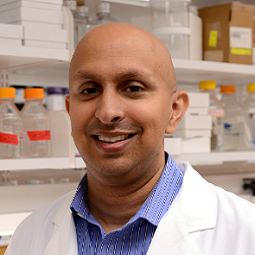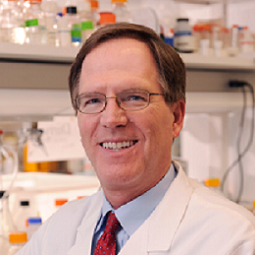The Hartwell Foundation honors two UT Southwestern scientists
By Sharon Reynolds
Since it was established in 1996, The Hartwell Foundation has been ensuring a brighter tomorrow for present and future generations of children. The Foundation’s primary mission is to fund early stage, innovative, and cutting-edge biomedical research that aims to benefit children in the U.S.

Dr. Rana Gupta

Dr. Philip Shaul
The Foundation’s cumulative, longtime support of scientists at UT Southwestern Medical Center exceeds $4.5 million, affording researchers the chance to realize their professional goals and transform health care for children through Individual Biomedical Research Awards, Hartwell Fellowships, and other awards. The Foundation has been successfully funding the Individual Biomedical Research Awards for 12 years, providing funds for early stage research projects that do not qualify for funding from traditional sources, such as the National Institutes of Health. UT Southwestern has been included in The Hartwell Foundation’s list of Top Ten Centers of Biomedical Research since 2006, when the Foundation instituted its Individual Biomedical Research Awards competition.
“Two UT Southwestern scientists were recently honored with awards from The Hartwell Foundation, which is pleased to recognize the strong commitment and continuing participation of UT Southwestern Medical Center in the Hartwell competition for early stage research funding to benefit children. Together, we inspire innovation and achievement by offering individual researchers an opportunity to realize their hopes and dreams,” said Fred Dombrose, President of the Foundation.
The honored UTSW scientists are Dr. Rana Gupta, Assistant Professor of Internal Medicine in the Touchstone Center for Diabetes Research, and Dr. Philip Shaul, Professor of Pediatrics.
“We are most appreciative of our long-standing partnership with The Hartwell Foundation,” said Dr. Daniel K. Podolsky, President of UT Southwestern. “Traditional funding sources don’t readily support the initiation of high-risk, early stage research, and the Foundation’s financial support fills a void for pediatric researchers whose work often leads to big discoveries. These research projects have the potential to contribute to the development of innovative, lifesaving patient care worldwide.”
Dr. Gupta received an Individual Biomedical Research Award that will provide $300,000 over three years toward his efforts to develop new strategies to treat children with infantile hemangiomas. These blood vessel tumors, commonly referred to as “strawberry marks,” are the most common tumors of infancy. Many of these tumors naturally transform into a fatty tissue containing fat cells; however, hemangiomas can lead to significant complications, including interference with vital structures (eyes, mouth, and genitals), bleeding, and ulceration. Current treatments are often accompanied by significant side effects, and tumors removed by surgery can leave long-lasting scars.
“The development of novel safe and effective treatments for infants with hemangiomas has been hampered by a lack of understanding where hemangiomas come from and what causes them to naturally transform into fat tissue,” Dr. Gupta said. “My research will tackle these important questions and will allow us to develop new models for investigators to study these tumors in the future. In addition, this study may lead to improved understanding of the development and accumulation of fat cells in adult obesity.”
Recently, The Foundation presented a Special Biomedical Research Grant to Dr. Philip Shaul, Professor of Pediatrics, for his invited proposal, “Preventing Obesity-Induced Diabetes.” A grant of $409,574 will support his research for three years.
Dr. Shaul, also Vice Chair of Research in the Department of Pediatrics and Interim Chief of the Division of Pediatric Respiratory Medicine, is studying how obesity causes type 2 diabetes, the form of diabetes in which tissues in the body that handle glucose are resistant to the actions of insulin. His team recently identified a unique mechanism that links obesity and type 2 diabetes in mice, and with Hartwell Foundation support, the researchers hope to determine if that same mechanism also occurs in obese children.
“For the first time in history, it is predicted that children living today are at risk of having life spans shorter than those of their parents,” Dr. Shaul said. “This is primarily due to the epidemic in childhood obesity and its lifelong complications, including diabetes. If we obtain evidence of the mechanism in obese children, we can then consider designing a clinical trial to test the efficacy and safety of a treatment that we have already determined prevents obesity-induced diabetes in mice.”
For more information about The Hartwell Foundation, go to thehartwellfoundation.org.
Dr. Shaul holds the Associates First Capital Corporation Distinguished Chair in Pediatrics.
Dr. Podolsky holds the Philip O’Bryan Montgomery, Jr., M.D. Distinguished Presidential Chair in Academic Administration, and the Doris and Bryan Wildenthal Distinguished Chair in Medical Science.